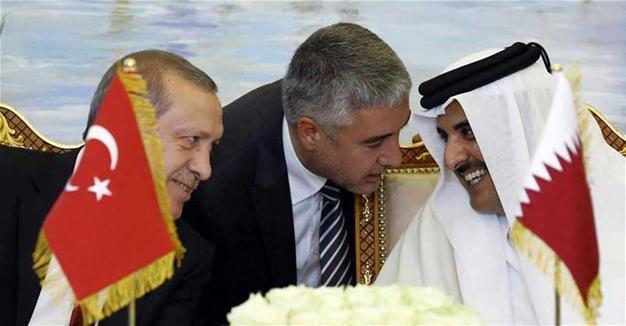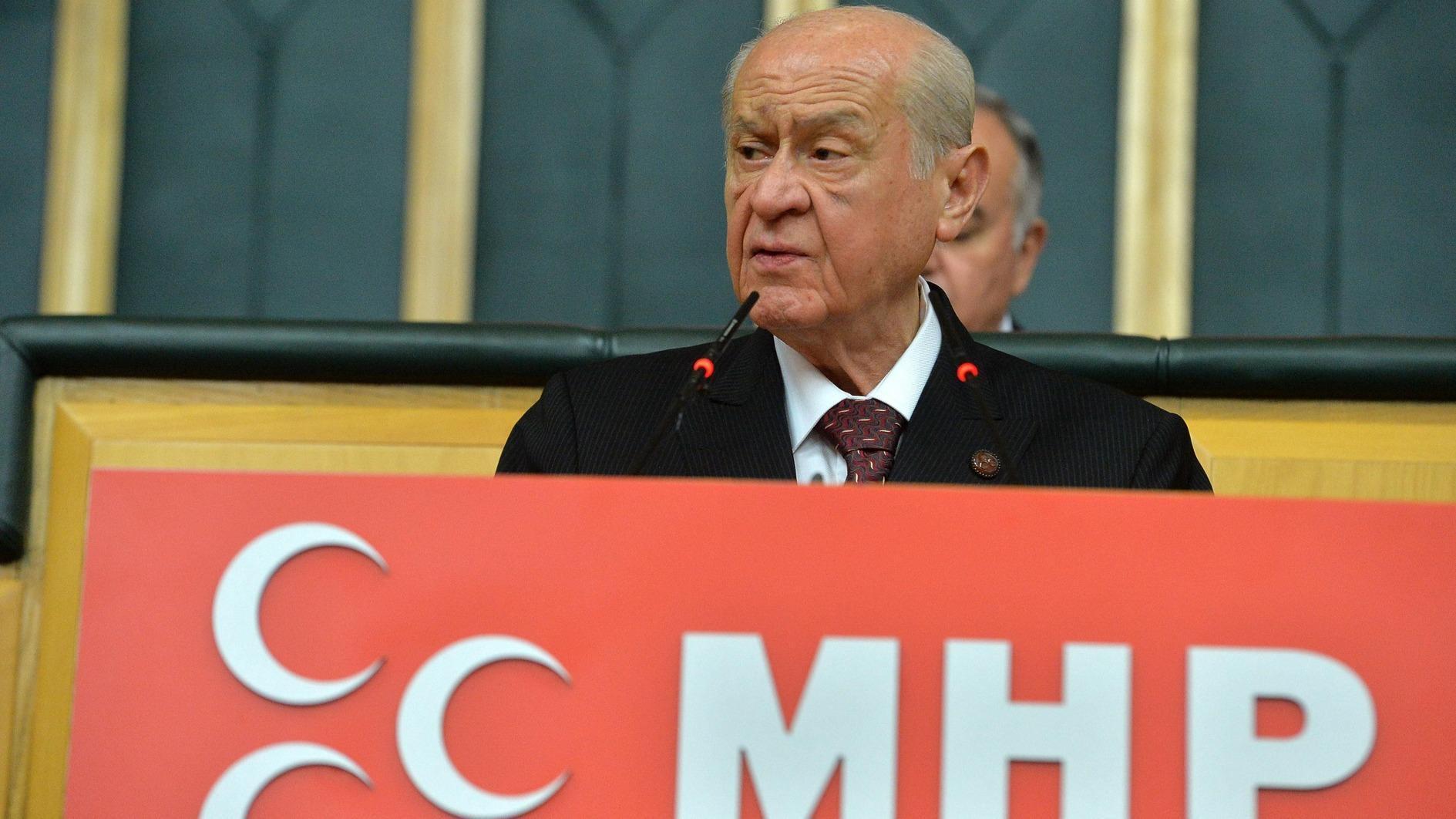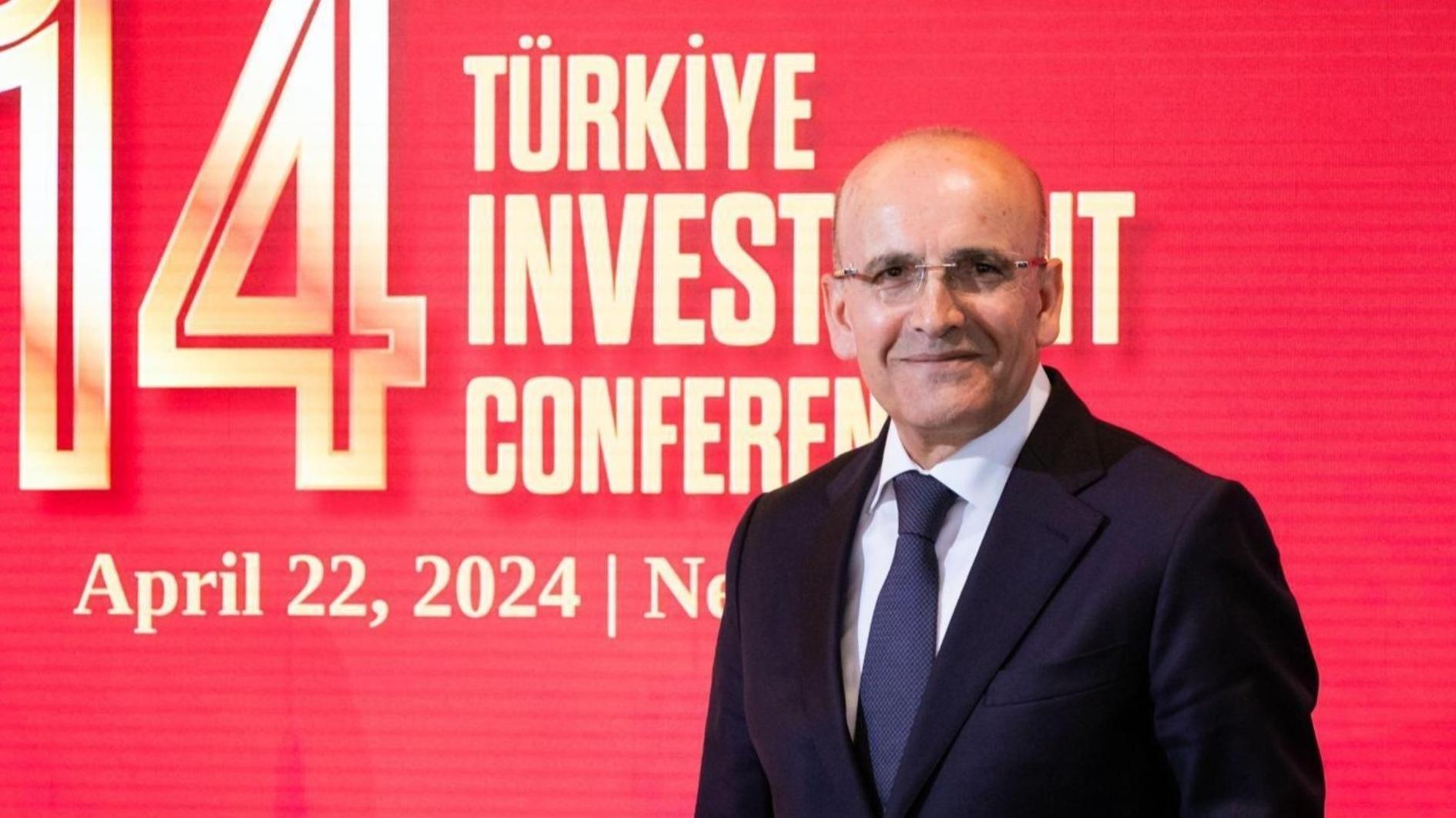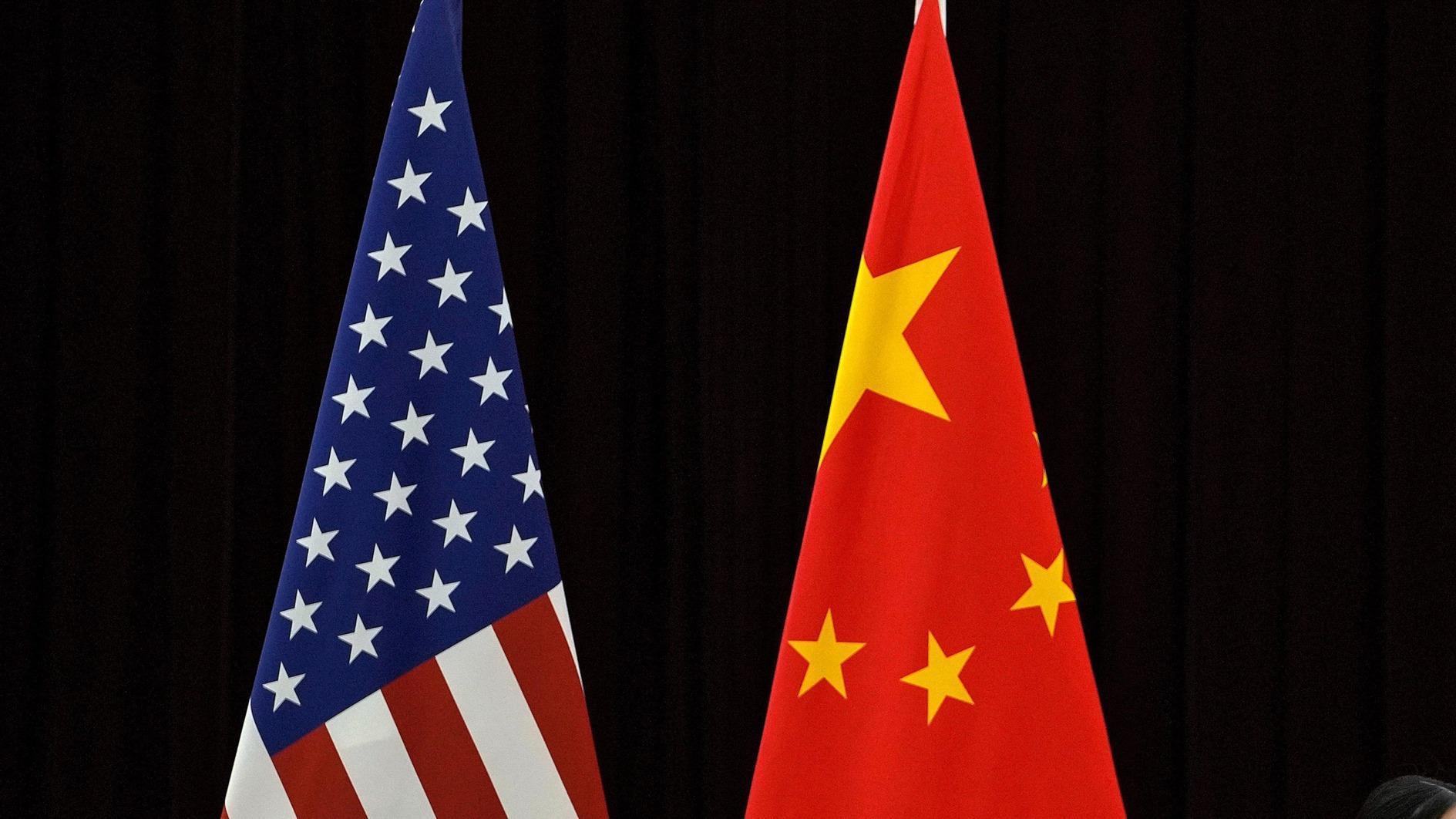INTERVIEW: Birol Başkan on Turkey and Qatar’s alliance in the tangled Middle East
William Armstrong - william.armstrong@hdn.com.tr

Turkish President Recep Tayyip Erdoğan meet with Qatari Emir Sheikh Tamim bin Hamad al-Thani in Doha in 2015. - Anadolu Agency
Amid the ongoing diplomatic crisis in the Arab Gulf, the close alliance between Turkey and Qatar has come under the spotlight. This partnership has flourished in recent years, based on a shared view of regional politics and sympathy for Muslim Brotherhood-aligned forces.“Turkey and Qatar in the Tangled Geopolitics of the Middle East” by Birol Başkan, an Assistant Professor at the Georgetown University School of Foreign Service in Qatar, is a useful primer on Ankara-Doha ties. The book examines how regional turbulence has shaped security, political and economic relations between the two countries. It makes the key point that their alliance has been strengthened by adversity, with Turkey and Qatar becoming closer in the face of a backlash among rivals.
Başkan spoke to the Hürriyet Daily News about his book (reviewed in HDN here) and about the current bitter crisis in the Arab Gulf.
The book was released last year but it has become very topical with recent developments. Could you predict back when you were writing that something like this was on the cards?
When I was writing the book there was already a crisis between Qatar and the other Gulf states. There was a similar huge incident in March 2014 when three Gulf states - Saudi Arabia, the UAE and Bahrain - withdrew their ambassadors from Doha. So this latest crisis did not come as a shock because those who are following Gulf politics closely know that Qatar is sort of a “problem child” of the Gulf.
However, the severity and magnitude of the crisis this time is unprecedented. It's not just the Gulf anymore, Saudi Arabia and the UAE are also bringing non-Gulf states into the picture, pressuring them to cut ties with Qatar. So the crisis is much more severe. It's not just about withdrawing ambassadors, but also asking them to leave the country. As far as I know, Qatari investors were not asked to leave in 2014, but Qatari citizens have been asked to leave this time and an air and land blockade has been imposed. These measures weren't taken in 2014, but the fundamentals are the same; there are the same complaints about Doha. It's just a second round of the same crisis.
You focus largely on the years after 9/11, when the geopolitical situation basically brought Turkey and Qatar’s foreign policies into line. Could you just describe this process?
After 9/11 the U.S. adopted a more hostile attitude toward the Middle East. There were the invasions of Afghanistan and Iraq, and the discourse of "spreading democracy and human rights" in the Middle East was threatening to all authoritarian regimes of the Middle East. In that context, several things happened that paved the way for Turkey to play a more active role in the Middle East. Egypt and Saudi Arabia, all the giants of the Arab world, were troubled by the discourse and policies of the U.S. and basically there was a leadership vacuum in the Middle East. Also Turkey, especially after refusing to allow the U.S. to invade Iraq from the north, unintentionally and calculatedly became a kind of country that could stand up against the U.S., which created sympathy among Arab populations. This context presented an opportunity for Turkey to return to the Middle East economically and politically. From the U.S. perspective, Turkey was also an ideal case: Democratic and secular but with an Islamist party in power. It was a perfect model that the Bush administration could present to the Middle East.
Similar factors also paved the way for Qatar to play a role much larger than its size. But there are also some historical preconditions such as Al Jazeera: Qatar’s rulers invested in this network back in the 1990s, and it turned out to be a very good soft power asset. There was also the perceived rise of Iran, which expanded its sphere of influence in Iraq and was already influential in Syria and Lebanon. This created another dimension to the regional context. Basically Arabs needed another state to balance Iran's increasing influence.
Turkey and Qatar adopted very similar positions on Hamas and when the Arab Spring broke out they adopted similar positions on many issues. Both had good relations with the global Muslim Brotherhood and both played roles in regional and sub-regional conflicts, in peace talks between Palestine and Syria for example. Also when Saudi Arabia and the UAE were quite hostile to Iran, especially after the U.S. invasion of Iraq, Turkey and Qatar had excellent relations with Tehran.
From afar, Turkey and Qatar are very unusual partners with almost nothing in common. But somehow they both came to adopt similar policies on major issues and to expand their influence. By the emergence of the Arab Spring they were on the same page on all issues. This can be explained largely by their shared perspective on the transnational Islamist movement, the Muslim Brotherhood. In Turkey the Justice and Development Party (AKP) of course comes from the political Islamic tradition, which is distinct from the Muslim Brotherhood but shares a lot in common. The Qatari ruling family is by no means Islamist - it is more like a kind of 19th century Ottoman ruling family, reformist in many ways and trying to break the conservative hold on society by introducing a kind of Westernization - but the local allies it has employed in the state definitely have Islamist backgrounds.
The Muslim Brotherhood question is at the core of the current disagreement between Qatar and other Gulf states. The Brotherhood wants to challenge the established order in the region so it is seen as a big threat to the status-quo favoring regimes led by Saudi Arabia.
This division among the Gulf states actually began to emerge in the 1980s. They have all had relations with the Muslim Brotherhood at least since the 1950s, when basically the Gulf states began to invest in their state institutions using oil money - education, health, religious institutions, etc. They needed manpower as their states were not developed yet. When the oil money started coming in the Gulf states were basically just tribal states: Very informal, very uninstitutionalized.
The manpower they needed as they started to build their own institutions largely came from other Arab states with much more developed education systems: Egypt, Palestine, Lebanon, Iraq, Syria. Among these figures were Muslim Brothers. This is how the Muslim Brotherhood came to the Gulf. Relations were cordial at first, but this began to change after the 1980s, when the Iranian Revolution really politicized the Muslim Brotherhood. The Brotherhood was always by its nature political, but in the Gulf it had generally been apolitical. The Iranian Revolution really boosted its confidence and they began to be much more vocal, demanding more religious laws and more conservative lifestyles.
But Qatar was a different story. My explanation for why relations between Qatar and the Muslim Brotherhood didn't deteriorate is the nature of Qatari society, which was generally much more tribal and conservative than the others. When you have such strong tribal structures it means that religious movements like the Muslim Brotherhood cannot really penetrate deeply, as the tribe is already performing that organizing role. So in Qatar the Brotherhood had a limited presence and it wasn't such a threat. Also important is the fact that Qatar's modernization process deliberately tried to avoid antagonizing conservative Muslim Brotherhood forces.
The Arab Spring changed the balances. Turkey and Qatar threw their lot in behind the Muslim Brotherhood-linked forces during this period, which unsettled regimes like Saudi Arabia.
When the Arab Spring started it looked like the Muslim Brotherhood would be the major beneficiary, as Brotherhood-linked parties and figures won elections in Tunisia, Egypt and Yemen. What was seen as a domestic problem by Saudi Arabia and the UAE therefore became a regional problem, because their local Muslim Brotherhood or Islamist figures could possibly become backed by a regional power.
Imagine if the Muslim Brotherhood ruled in Egypt and started supporting the Brotherhood in the Gulf countries. That would pose a huge problem for the Arab Gulf monarchies, apart from Qatar of course. The King of Jordan, King Abdullah, gave an interview in which he warned about the rise of a "Muslim Brotherhood crescent" in the Middle East. He saw a troubling development in the axis of Egypt and Turkey and their shared ideology.
Perhaps the key point you make in the book is that when Turkey and Qatar became isolated and faced a regional backlash this pushed them closer together. That was true during the backlash against the Arab Spring and perhaps it’s true during the current crisis.
After the military coup in Egypt the Turkish leaders reacted very harshly and emotionally. At the same time there were also the Gezi protests in Turkey, and the AKP leaders saw these two things as being linked in an international conspiracy. Turkey basically burned bridges with almost all countries in the Middle East including Saudi Arabia and the UAE, even though it had vital economic interests with them, because they supported the coup. That was the time when presidential spokesperson İbrahim Kalın called Turkey's situation "precious isolation."
Qatar was also experiencing a similar isolation because of its relations with the overthrown Egyptian President Muhammad Mursi. Qatar actually supported Egypt under Mursi even more than Turkey, providing billions of dollars in aid just to sustain the Mursi government. Also of course there’s the question of Al Jazeera, which with the permission of the Qatari government was very critical of the military coup.
Qatari Emir Sheikh Tamim was new in power just before the coup in Egypt. He was a very young, new face who essentially tried to do damage control in the years after the coup. His first visit, for example, was to Saudi Arabia. He visited Saudi Arabia, the UAE, and Kuwait numerous times, trying to mend ties with them rather than trying to change their policies. He even made some concessions. For example the iconic Muslim Brotherhood figure Yusuf al-Qaradawi became less public in those days. Apparently Sheikh Tamim also signed what is known as the Riyadh declaration, which basically promised not to support any movement that would undermine the political order of any other Gulf state. Of course the target of that declaration was the Muslim Brotherhood.
But Sheikh Tamim failed in his bid to mend ties and in March 2014 there was the ambassador crisis, in which Qatar really became isolated. During that time, Qatar began to develop much closer ties with Turkey. In the 2000s Turkey and Qatar had adopted similar positions but this only transformed into a much closer, much more friendly strategic relationship very recently. That special relationship began to be forged in the aftermath of the military coup in Egypt.
Now there’s this latest crisis between the Arab Gulf states and Qatar. Talk about Turkey’s positioning in it and what you predict will happen going forward.
The origin of the crisis is not new, but the severity of the crisis is unprecedented. The scale of rhetoric on both sides is unprecedented. It's truly a massive crisis. After the Egyptian coup in 2013, Qatari rulers even feared that Saudi and the UAE could go all the way to even staging a military invasion of Qatar, or at least support a coup inside Qatar. We should remember that these are tribal societies. There are many tribes in Qatar who have connections in Saudi Arabia. Due to its very unique historical and geographical experience, Qatar still has a lot of tribes that move in and out of the country. Many of these tribes had duel Saudi-Qatari citizenship until very recently. So Sheikh Tamim had reason to fear that Saudi Arabia may try to buy these tribes and create trouble inside Qatar.
We should also keep in mind that the ruling al-Thani family itself is huge, unlike any other ruling family in the Gulf. The al-Saud family in Saudi Arabia is also huge but in proportion to the population it is not as big. The al-Thani family has different clans within it and some of them have been openly pro-Saudi until very recently. Family disputes have often been resolved by bringing Saudi Arabia into play.
Until the 1990s Qatar was basically just a satellite of Saudi Arabia, doing whatever Saudi Arabia wanted. It was only with previous Emir Sheikh Hamad that it began to pursue an independent policy. Now, because of the connection that Saudi Arabia and the UAE had with the tribes and with members of the ruling family, the current emir has every reason to fear that they may try to do something to undermine his power. There have been a number of palace coups in Qatar in the past.
Knowing this context, the Sheikh has very deliberately cultivated contacts with Turkey that go way beyond finance. What he needs is a strong ally. It is really unprecedented that he signed a military agreement with Turkey, allowing it to send troops to Qatar and inviting Turkish officers to train the Qatari army. This is not just training; it is also a show of force, a message that he has regional allies and is not alone.
















